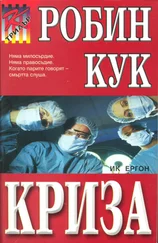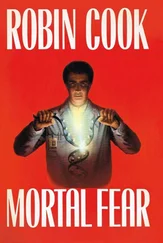“How did you follow me to Paula’s house?”
“We personally didn’t follow you. The professionals did.”
“I thought I was being careful.”
“Well, they are, by definition, professionals. I assume they merely tracked your cell by GPS. Either that or they put a GPS tracker on your car.”
George looked at Paula, who raised her eyebrows as if to say “I told you so.”
“Now, if there are no more questions...” Thorn looked back and forth between Paula and George, waiting.
At first neither Paula nor George moved. Then Paula piped up: “When the, quote, ‘professionals’ invaded my house, they blew my front door off its hinges. What do you plan to do about that?”
“Already taken care of. The door is back on, restored to normal, as is the security system.”
Thorn waited a few beats before adding, “Well, then, the ball is in your court. We will leave you two alone to discuss the situation. But remember, we believe that now is not the time for the general public to hear about the ‘glitch’ issue. The public is not ready for the debate about resource allocation, and iDoc should not be made a hostage to it. That’s why you two must agree not to expose iDoc’s problem, at least in the short term, until iDoc is introduced on a national scale and included with Medicare and Medicaid. At that point, the government and Amalgamated will respect your input.”
Paula had another question. “How long do we have to make up our minds?”
Thorn shrugged. “As long as it takes. Let’s just say as soon as possible. If you have any additional questions just let the attendants know. There’s a large common room where you’ll be allowed to spend most of your time. And a dining room where you will take your meals. Nights will be spent in the rooms you occupied last night. You will not be bothered. At the moment you are the only...” He searched for the right word, finally adding, “Guests.” He rose from his chair. Langley and Clayton followed.
“We hope to hear from you both soon,” Thorn said with a forced smile.
With that Thorn, Langley, and Clayton filed out of the room, closing the door behind them.
George and Paula eyed each other, mouths agape.
“That was one of the weirdest experiences I’ve ever had,” George said, shaking his head.
“Agreed,” Paula responded. “I don’t know what I expected but that certainly wasn’t it. I don’t know whether to be thankful or mad or both. Hell, they could have just phoned us rather than sending in the goon squad.”
A minute later the door opened and several of the attendants reappeared. They motioned for George and Paula to follow them to the common room.
MENTAL HEALTH FACILITY
HOLLYWOOD HILLS, LOS ANGELES, CALIFORNIA
MONDAY, JULY 7, 2014, 10:35 A.M.
George and Paula cast their eyes around the large, very institutional-looking common room, which was furnished with several aged couches and a smattering of club chairs that faced an old TV set. The TV was tuned to a morning game show. In addition, there were four game tables and two bookcases, with a collection of dated books — mostly old Reader’s Digest condensed editions — and magazines and board games. To complete the functional decor, the windows were barred.
Standing off to the side, near the entrance to the room, were four of the original six attendants, keeping an eye on their charges. On the other side of the entrance was the hallway leading back toward the conference room, and farther on, in the same direction, were the rooms where George and Paula had spent the night.
Paula and George were not watching TV but left it on to cover their muted conversation. They were settled into a couple of the chairs, as far away from the attendants as possible.
Paula was still incensed. “I cannot believe that they are treating us like this, holding us captive in this fifties-style mental institution.”
“The whole affair defies imagination,” George stated. “But I have to say that right now I’m feeling a lot better and a lot more relieved than I expected I’d be feeling.”
“I guess I have to agree.”
“I wonder if there are any other inmates or patients here despite what Thorn said.” George looked back toward a glass-fronted nurses’ station. Inside was a desk, where one of the attendants was doing paperwork.
“If there are other people, then they must be in isolation,” Paula said, her eyes following George’s as they took in their surroundings for the hundredth time.
“Okay,” George said, turning to face Paula. “We have had time to recover from our shock at seeing Thorn, Langley, and Clayton. We have to talk! What’s your gut reaction to Thorn’s lecture?”
Paula shook her head. “I haven’t had time to completely internalize it. I still feel so shell-shocked about the whole affair that it’s hard to think clearly. All at once I have much more of an appreciation of post-traumatic stress.”
“Me, too. But we have to make an effort. I imagine they expect to hear from us fairly soon.”
“You’re probably right.” She reached out and touched his hand reassuringly. “Listen! I don’t know how I feel about it all, but at least there are some compelling aspects to their offer.”
“What do you mean?”
“I mean the part about needing some kind of rationing of health care for the last months of life. Ironically it has always existed, but behind the scenes. I mean, the demand for health care, or should I say sick care, is near infinite. Rationing has always been around in this country. And I must say it’s been unfair, since it has been based on ability to pay or celebrity status. People with money and power have always gotten the health care they needed or desired. I don’t know for sure, but maybe Mickey Mantle’s liver transplant is a case in point. Possibly the same for Steve Jobs’s.”
“Are you buying Thorn’s premise to let sleeping dogs lie?”
Paula shrugged. “I’m not buying anything. I’m just thinking out loud. I was blown away by Langley’s explanation that iDoc actions were responsible for the deaths. Like you, I thought for sure it had to be hackers. It never occurred to me that it came from the iDoc algorithm itself. I mean, I did know about all the subjective aspects Langley mentioned regarding cost control and quality of life that had been taken into consideration when the iDoc program was designed, but I never would have made the leap to think that iDoc would be analyzing these considerations and making the decision that it’s best to get rid of people. Yet rationing has always been around. Maybe there is something to letting an algorithm, which is completely nondiscriminating, handle the matter. What could be more fair?”
“It sounds like you have made up your mind.”
“No, but I have to say, talking about it does help. When I think about the individual cases, I mean, there is no way that they should have been murdered, because that is what happened. Yet at the same time they may not have wanted to be tortured with any more drugs that wouldn’t have cured them and might have had horrific side effects. Maybe there is a place for assisted suicide or at the very least for expanded hospice care.”
George nodded. He could see Paula’s point. “I have to admit that I have never given much thought to the issue.”
“Well, maybe it is an issue that can no longer be swept under the rug.”
George ran a nervous hand through his hair. “Health care is changing so fast with Washington mandating private health insurance. What the government should have done is make health care a function of government alongside education and defense, like medicine for everyone.”
“That was never going to happen,” Paula said. “That unfortunately got mislabeled as ‘socialized’ medicine way back when none of our politicians had enough courage to take it on.”
Читать дальше












